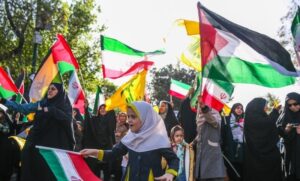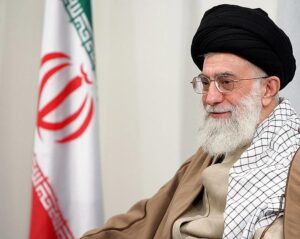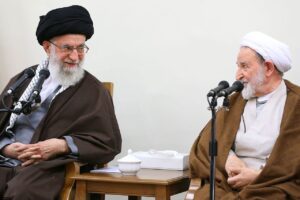On June 9th, the Stimson Center organized a virtual roundtable discussion on the upcoming Iranian elections on June 18, 2021. The roundtable discussion was organized by Stimson’s Security for a New Century (SNC) program and its Middle East and North Africa (MENA) program. Participants included senior Congressional staff and members of the European academic, policy, and think tank community. The transatlantic discussion focused on how the outcome of the Iranian elections, specifically the presidential election, could shape and be shaped by internal and regional dynamics. It also looked at what this would mean for the U.S.’ and the European Union’s (EU) positioning towards Iran, both independently and in coordination with each other.
The conversation started with a discussion of the election’s legitimacy. Credible surveys in Iran point towards a low voter turnout of around 38%, despite a growing electorate. In addition, the number of candidates that voters can chose from is low, and the choice is narrow. There are only seven candidates approved by the Guardian Council, of which five are either conservative or in the far-right corner.
The political shift towards the right, as one discussant mentioned, has taken place over the past five to six years. Even moderate political figures have become more hawkish in their overall foreign policy posture, including towards the West. The discussion pointed to several reasons why this shift has taken place, including that the reform camp and modernists have since the mid-1990s closely linked their domestic and foreign policies. As a consequence, their internal positions have been very dependent on unpredictable foreign policies and growing international pressure.
A positive development is that there is now an open debate taking place in Iran on the legitimacy of the elections. There may also be a shift towards a new social contract, with legitimacy based not on elections but rather on socio-economic livelihood.
As for Iran’s likely foreign policy following the elections on June 18th, the conversation coalesced around several expectations. First, if a renewed deal on the Joint Comprehensive Plan of Action (JCPOA) is not finalized before the elections, it is expected by the end of current President of Iran, Hassan Rouhani’s, term in August. Second, it is anticipated that security talks between Iran and Saudi Arabia will continue, as will Iranian outreach for a strategic partnership with China and its pivot towards the East.
When it comes to Iran’s dealings with the EU, the discussants emphasized that while it will not be pushed aside, Iran will be mainly interested in bilateral engagements, depending on the outcome of the renewed JCPOA negotiations, and in the EU as an economic power, rather than a military one.
Looking at Iran’s dealings with the U.S. and U.S. perceptions of Iran, no major changes are expected after the presidential election because it is Iran’s Supreme Leader who ultimately shapes Iran’s foreign policy. Yet, despite this likely continuity, the U.S. will look at Iran within its regional context and be especially focused on the perceived strengthening of relations between Iran and Russia and China.
The discussion also highlighted potential follow-up talks between the U.S. and Iran after a new nuclear agreement is reached. Key stakeholders in the U.S. will want to protect their interests in the wider Middle East region, and U.S. regional allies will want (and will pressure U.S. President Biden to pursue) a secondary deal that includes their regional security concerns.
Yet, the speakers foresaw several challenges to follow-up talks. If Iranian presidential candidate Ebrahim Raisi is elected, it will be difficult for the U.S. and EU to engage with a future Iranian regime, since Raisi is under U.S. and EU sanctions. Biden also faces domestic pressure, as various groups are calling for U.S.-EU cooperation against Iranian malign activities and are against rolling back sanctions.
The main challenge, however, lies in how to incentivize Iran to engage in a secondary deal. Follow-up talks could include the broad topic of nuclear non-proliferation, but Iran is not expected to be willing to engage directly on the missile crisis. One speaker urged the U.S. and EU to work together in creating incentives, and one suggestion that came up during the discussion was to present Iran with a plan to roll back sanctions in exchange for successful conclusion of secondary talks or add sanctions if engagement is not forthcoming.
Another area for U.S.-EU cooperation mentioned during the discussion was increased alignment of U.S.-EU messaging towards Iran. Furthermore, one speaker pointed to the need for confidence-building measures between the U.S., EU, and Iran. Lastly, the EU and U.S. could cooperate on ensuring that financial resources do not end up with the Islamic Revolutionary Guard Corps (IRGC). This could be done, for example, by excluding certain Iranian actors from sanctions waivers.
Featured Speakers:
- Adnan Tabatabai, Co-founder and CEO, Center for Applied Research in Partnership with the Orient (CARPO), Bonn, Germany
- Kirsten Fontenrose, Director of the Scowcroft Middle East Security Initiative, Atlantic Council, Washington, D.C.
Moderated by:
- Kawa Hassan, Executive Director of Stimson Europe and Senior Fellow and Director of Stimson’s MENA program, Brussels, Belgium
If you are interested in future events by Security for a New Century or the Middle East and North Africa program, or have any questions about this event, please contact Carolyn Haggis ([email protected]) or Desirée Custers ([email protected]).



